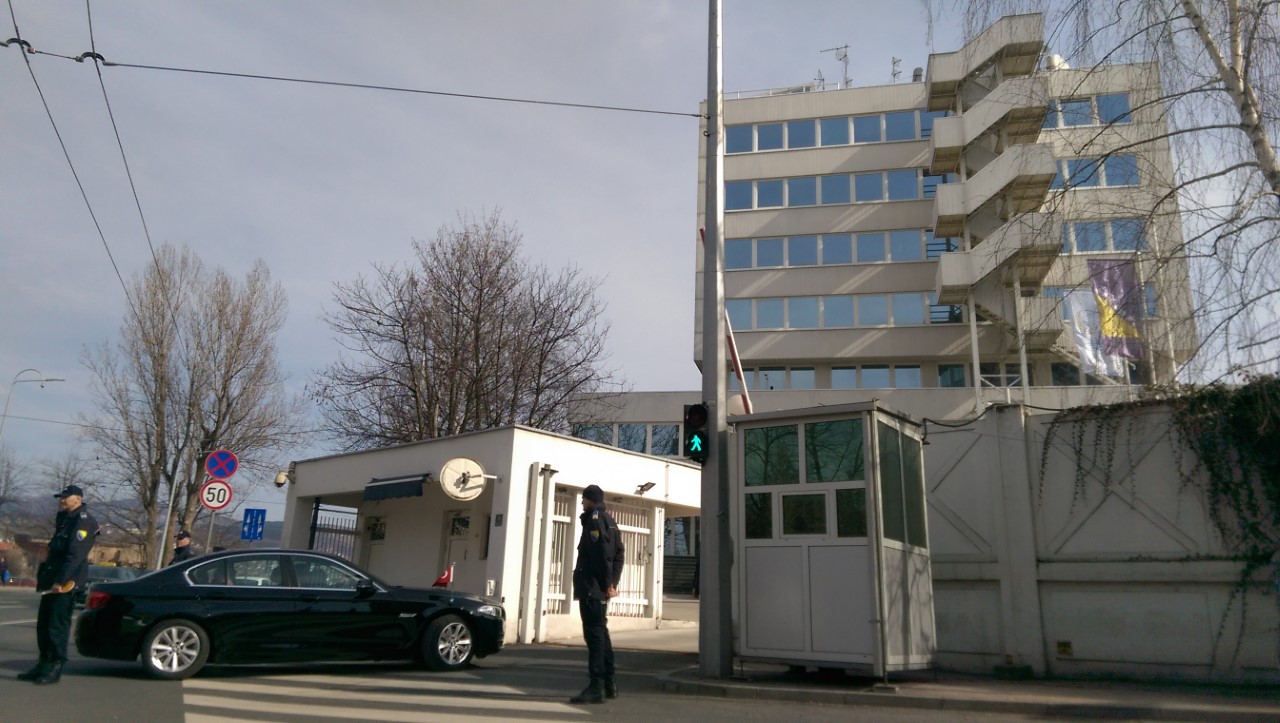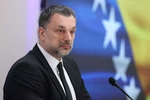International officials welcome verdict against Karadzic, call for cooperation

International officials welcomed the final verdict against former Bosnian Serb leader Radovan Karadzic on Wednesday, calling upon local leaders and media to respect it and to cooperate with the international court which handed it down.
The International Residual Mechanism for Criminal Tribunals (IRMCT) changed on Wednesday the first instance sentence of the former Bosnian Serb leader from 40 years in prison to life for genocide and other war crimes he had committed during the 1992-95 war in Bosnia and Herzegovina.
According to the High Representative, Austrian diplomat Valentin Inzko, who was named by the international community to oversee the civilian implementation of the 1995 Dayton Peace Agreement which ended the war, the verdict “represents an important moment and hopefully offers a sense of closure for all the victims and survivors of genocide, war crimes and crimes against humanity in BiH.”
“No court decision can bring back the loved ones of the survivors, but it can give some measure of redress. Concurrently, by affirming individual responsibility rather than collective guilt, the Court’s decision should bring relief to all decent people. There are no bad nations, only bad individuals,” the High Representative stated.
Inzko called on all authorities and political leaders in BiH to “refrain from resorting to political posturing or trying to discredit the important work done by these international tribunals,” adding that “the decisions of the Tribunal must be respected.”
“It is time for the politicians and citizens of Bosnia and Herzegovina to respect the past, but also to turn a new page, look towards the future, reconcile and rebuild trust among peoples in BiH. This is a prerequisite for the country and its people to move forward,” concluded the High Representative.
The U.S. Embassy in Bosnia welcomed the verdict, saying it represents an “important step toward holding to account those individuals responsible for the tremendous suffering of the people of Bosnia and Herzegovina, while providing some sense of justice and closure to victims and their families.”
“We urge all parties to respect the court’s verdict, and rededicate themselves to the continued reconciliation and peaceful coexistence essential to the future of a stable, secure Bosnia and Herzegovina that safeguards the rights of all its citizens,” a press statement by the Embassy said.
The Head of the OSCE Mission in Bosnia, Bruce Berton, also hailed the verdict as “another crucial step toward holding accountable those individuals most responsible for genocide and other atrocities committed in Bosnia and Herzegovina.”
“First and foremost, our thoughts are with the families of the victims, for whom the pursuit of justice has been long and painful,” an OSCE statement quoted Berton, who called the process “complex and painful” but “critically important.”
“Holding individuals accountable for their criminal actions, even these many years after the war, is essential to building lasting peace in Bosnia and Herzegovina, upholding the rule of law and strengthening international jurisprudence,” Berton said. “We strongly urge all citizens in the country and beyond - in particular, political and party leaders, media, local government officials, religious leaders and community activists—to respect today’s verdict and avoid inflammatory, divisive rhetoric.”
The European Union Delegation in Bosnia said the verdict “closes a case relating to some of the most tragic events in Europe's recent history, involving war crimes, crimes against humanity and genocide.”
“Our deep sympathies are with those who lost their loved ones and those who survived,” an EU press statement said.
The EU said it fully respects the decisions by the international tribunals which handed down the sentence and emphasised the need for cooperating with them.
“The EU expects all leaders in the region to support the decisions of the international tribunals and to refrain from any statements or actions casting doubt on the independence or the impartiality of the adjudication process,” the statement said.
“Denial or revisionism contradict the most fundamental European values,” it said.
“Reconciliation requires an honest and factual assessment of the past, coming from within societies and bringing together all parties to the conflict,” it concluded, adding that “education and awareness are key.”
Kakvo je tvoje mišljenje o ovome?
Učestvuj u diskusiji ili pročitaj komentare





 Srbija
Srbija
 Hrvatska
Hrvatska
 Slovenija
Slovenija



























































